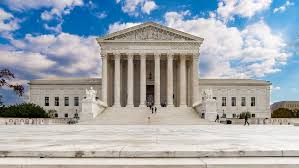Supreme Court Decision on St. Isidore Case
On May 22, 2025, the U.S. Supreme Court delivered a brief yet significant ruling in a contentious case concerning St. Isidore of Seville Catholic Virtual School located in Oklahoma. The court reached a 4-4 deadlock on whether the state could fund this Catholic online charter school. Justice Amy Coney Barrett's recusal left only eight justices to decide the case, leading to a split outcome that upholds a prior Oklahoma Supreme Court decision against the charter's establishment.
The core of the dispute revolves around the Catholic school’s pursuit of status as a state-funded charter institution, which raised questions regarding the separation of church and state as outlined in both the U.S. and Oklahoma constitutions.
Oklahoma Attorney General Gentner Drummond argued that public funding for St. Isidore would violate the Oklahoma Constitution, which expressly prohibits the appropriation of public funds for any sectarian institution. This foundational conflict brings to light broader discussions about the role of religious institutions in publicly funded educational environments.
The Broader Implications
The ruling has broader implications not just for St. Isidore but for the future of religious schools and taxpayers' money. Critics of the ruling emphasize that allowing state funding for a religious institution might blur critical legal lines established to maintain church-state separation. They argue this could open the door to additional government funding directed towards similar faith-based educational initiatives, shifting the landscape of public education.
To put this matter into perspective, officials in Oklahoma, particularly Attorney General Drummond, had strong reservations about allowing the establishment of what they deemed a potentially problematic religious school funded through taxpayer money. He stated that he would continue to fight for what he perceives as the protection of Christian values and the law.
Continuing Controversy
The St. Isidore case highlights ongoing tensions in public education, particularly as conservative-led initiatives seek to incorporate elements of religion into educational settings. Recent efforts in other states, including mandates for displaying religious texts like the Ten Commandments in classrooms, reflect a growing push to intertwine religious doctrines with public school curricula.
In this current context, it remains crucial to explore how public resources are allocated and the principles guiding such decisions. The uproar surrounding St. Isidore reflects a point of contention that could recalibrate how charter schools, particularly those with religious affiliations, are managed and funded.
Looking Ahead
The Supreme Court's deadlock leaves the situation unresolved, which means this case could resurface in the future affecting school-choice policies on a national scale. Legal experts speculate that further judicial scrutiny will likely challenge the constitutionality of excluding religious schools from public funding, similar to prior rulings involving educational tax credits and aid for religious institutions.
As discussions around school choice evolve, parents and supporters of faith-based education may continue to advocate for their right to choose schools that align with their beliefs in the face of government regulations. The St. Isidore ruling thus serves as both an endpoint and a potential precursor to future litigation and legislative battles concerning religious freedoms within the educational system.
Bias Analysis
Key Questions About This Article




